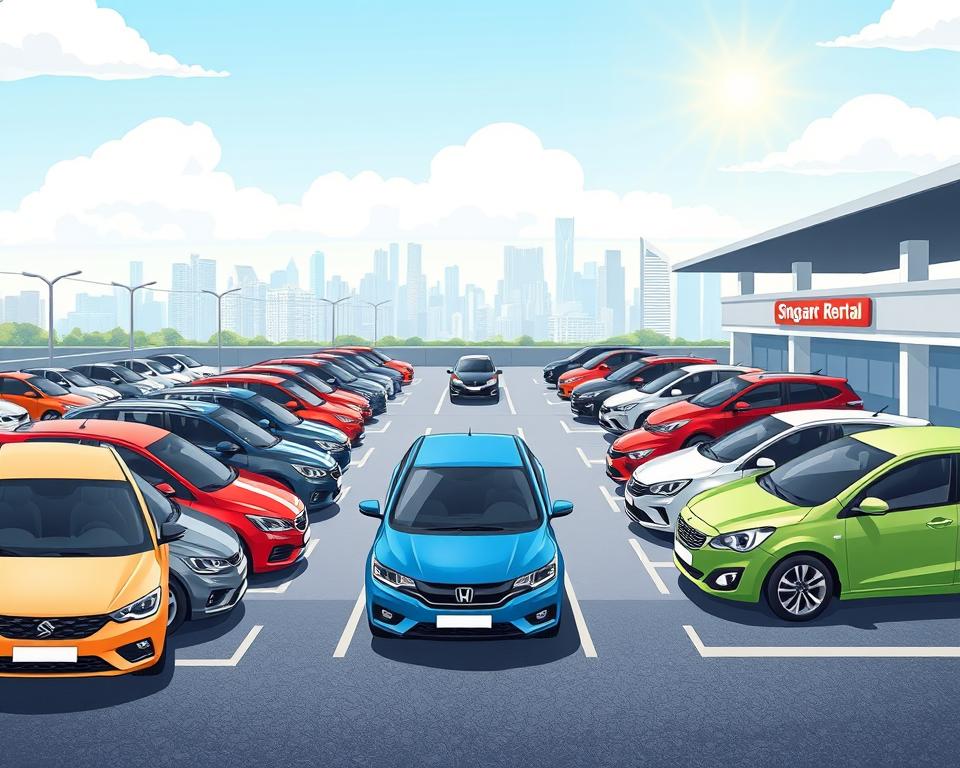Singapore Authorised Car Scrapyard Guide
Did you know: in the year 2022, approximately 90,000 vehicles were taken off the road and scrapped in Singapore? That number underscores the significance of knowing the vehicle scrapping process in the Lion City. For car owners, navigating this process can be daunting, particularly given legal requirements and the potential for accurate valuations hanging in the balance. Engaging a Singapore Authorised Car Scrapyard keeps you compliant with LTA rules while allowing you to receive an fair scrap value for your vehicle. In this guide, you’ll explore the essential aspects of https://sgcarscrap.com/singapore-authorised-car-scrapyard/, covering the services they provide and the regulations governing vehicle deregistration and disposal.
Essential Points
- Knowing the process of vehicle deregistration is crucial.
- Selecting an authorized scrapyard in Singapore ensures compliance with legal standards.
- Certified yards provide accurate scrap valuations.
- Correct disposal supports environmental standards.
- Knowing the benefits of PARF and COE rebates can reduce overall cost.
- Choosing trusted car disposal services makes scrapping smoother.
How Vehicle Deregistration Works in Singapore
Vehicle deregistration Singapore is an important process for any vehicle owner looking to retire a vehicle. This official de-registration ensures that it can no longer be used on public roads. Upon deregistration, vehicle owners are presented with three routes: scrapping the vehicle at an authorized scrapyard, exporting the vehicle, or storing it temporarily within an Export Processing Zone (EPZ).
Choosing authorised car disposal is crucial as it meets local rules and guarantees that the vehicle is handled safely. Engaging in scrap car removal through a approved scrapyard not only gives confidence but also ensures proper recycling of vehicle components.
If you fail to lodge proof of disposal within 1 month, penalties apply. Vehicle owners may face fines and potential imprisonment for non-compliance. Being aware of these duties helps ensure a smooth and legal process during vehicle deregistration.

Importance of Choosing an Authorized Scrapyard
Selecting an authorized car scrapping service in Singapore holds significant importance for vehicle owners. Authorised scrapyards operate under the regulations set by the Land Transport Authority (LTA). This certification provides assurance that the vehicle will be disposed of legally and safely. These services complete the necessary documentation, which is essential for deregistration.
Trustworthy scrap dealers deliver important benefits. They offer market-based valuations based on various factors including age, condition, and market demand. Engaging with a trusted scrap dealer reduces risks of improper disposal. It protects both the owner and the environment from non-compliant practices.
Furthermore, authorized scrapping contributes to environmental sustainability. Licensed car wrecking yards prioritise responsible recycling, ensuring that hazardous materials are managed correctly. This approach cuts the footprint of vehicle disposal.
Steps to Scrap Your Car at an Authorized Scrapyard
Scrapping a car can seem like a daunting task, but understanding the sequence can make the process smoother and simpler. Understanding the necessary actions will help you move through the process efficiently. Preparing the right documents and preparing appropriately will ease the transition to an authorized scrapyard.
Step 1: Prepare for Deregistration
Before you start scrapping, it is essential to get deregistration-ready. This preparation involves discharging outstanding finance and ensuring all taxes related to the vehicle have been settled. Once these requirements are met, you can submit online via Singpass. If you do not have a Singpass account, visiting the LTA Customer Service Centre to make an appointment is the alternative route.
Step 2: Gather Documents
The next step involves compiling paperwork to facilitate the car scrapping process. Get these items together:
- Vehicle owner’s NRIC
- Proof of road tax payments
- Relevant forms mandated by the LTA
Having these documents ready will help ensure a smooth transaction when you visit the scrapyard.
What to Expect During the Scrapping Process
The scrapping process in Singapore is designed to be efficient, so owners can handle disposal with ease. The initial phase involves a thorough vehicle valuation, which is key in determining the final scrap value. This valuation considers several factors such as the car’s age, current condition, and the demand for specific parts in the market.
Step 1: Vehicle Valuation
During the vehicle valuation stage, professionals perform a detailed assessment. This assessment will include examining the exterior, interior, engine condition, and other essential components. Knowing your vehicle’s value is important for owners to make informed decisions. The outcome of this assessment affects the amount you will receive as compensation for your scrap car. Be aware that the scrap value might change depending on market fluctuations and demand for the vehicle’s parts.
2. Completing the Sale Agreement
Once the vehicle valuation is completed, the next step involves issuing a scrap car agreement. This document details the terms and conditions of the sale, including the agreed-upon scrap value and payment details. Owners should take the time to read the contract carefully before signing, as it legally binds both parties. Being clear on the terms of the scrap car agreement ensures that all expectations are clear and that there are no disputes once the process concludes.
In summary, the scrapping process in Singapore is straightforward, primarily centred on vehicle valuation and completing a scrap car agreement. By knowing these key aspects, car owners can enjoy a smoother, better experience.
PARF and COE Rebate Opportunities
Knowing your rebate options can improve financial outcomes. In Singapore, two primary rebate opportunities exist: the PARF rebate Singapore and the COE rebate. Both rebates encourage deregistration of older vehicles while supporting environmental goals.
PARF Rebate: Eligibility
To qualify for the PARF rebate, vehicles must be under 10 years old at the time of deregistration. Owners must ensure they apply for this rebate through the Land Transport Authority (LTA) within the specified time limits. The PARF rebate amount varies based on the vehicle’s original registration date, engine capacity, and the prevailing PARF rates, which can result in substantial savings.
Claiming the COE Rebate
The COE rebate is based on the remaining validity period of the Certificate of Entitlement at the time of deregistration. Vehicle owners should prepare the necessary documentation and submit their claims promptly. To claim your Singapore rebates, it is essential to review the COE rebate structure and see how remaining COE time impacts the refund. LTA’s detailed guidelines helps you claim for both PARF and COE rebates.
| Rebate Type | Eligibility Criteria | Claim Process |
|---|---|---|
| PARF Rebate | Vehicle less than 10 years old | Apply via LTA within the timeframe |
| COE Rebate | Remaining COE validity period | Submit documents to LTA |
Key Authorised Scrapyards & Locations in Singapore
Finding the right location for your car disposal needs is vital in Singapore. There are multiple compliant yards providing solid service, ensuring compliance with local regulations. Vehicle owners can decide more easily by understanding the main providers. Below is a list of major authorized scrap yards in Singapore, including their contact information and operating hours.
Major Authorized Scrapyards
| Scrapyard Name | Address | Phone | Operating Hours |
|---|---|---|---|
| Esun International Pte Ltd | 35 Sungei Kadut Street 1, Singapore 729354 | +65 6368 3399 | Monday – Saturday: 9 AM – 6 PM |
| Hup Lee Leong Hardware Pte Ltd | 17 Kallang Pudding Road, Singapore 349305 | +65 6742 0100 | Monday – Friday: 8 AM – 5 PM, Saturday: 8 AM – 12 PM |
| Kheng Keng Auto Pte Ltd | 10 Mandai Estate, Singapore 729910 | +65 6756 5828 | Monday – Sunday: 9 AM – 5 PM |
Contact & Hours
For a successful vehicle scrapping experience, it is essential to reach out directly. The above-listed authorised scrap yards Singapore provide dependable service and can guide you through the scrapping process. Reach out to them during their operating hours to ensure a seamless process, whether you require an authorized car disposal service or have questions regarding vehicle deregistration.
Consequences of Failing to Dispose Properly
Car owners in Singapore must be aware of the legal responsibilities that come with the disposal of deregistered vehicles. Neglecting to adhere to regulations can result in severe legal consequences. For instance, if an owner fails to submit proof of disposal within one month, they may face a fine of up to $2,000.00 or even imprisonment for a duration of up to three months.
Additionally, keeping or using a deregistered vehicle is considered an offense and carries similar penalties. Such legal consequences surrounding car scrapping highlight the necessity of compliance with the Land Transport Authority’s (LTA) regulations. Ignoring these guidelines may not only affect financial status but may also impact an individual’s criminal record, thus stressing the importance of proper car disposal.
Being aware of and adhering to the law protect you and the community. Responsible disposal practices can help mitigate the risks associated with deregistered vehicles, supporting safer roads.
Why Scrapping Helps the Environment
Scrapping vehicles at authorized facilities presents numerous environmental advantages. Responsible disposal not only manage waste better but also aid environmental stewardship. One significant approach is through eco-friendly car disposal, where car parts are properly recycled for reuse, reducing the overall ecological footprint associated with vehicle abandonment.
1. Recycling Car Parts
Recycling car parts Singapore is vital to reduce waste. Authorised scrapyards carefully dismantle and salvage. Components such as metals, plastics, batteries, and glass can be processed and reintroduced into the manufacturing cycle. This practice reduces raw material demand, conserving natural resources. As a result, the process contributes to a closed-loop system where materials are kept in use.
Cutting Pollution & Risk
Old vehicles often pose pollution risks over time. By choosing eco-friendly scrapping, owners significantly reduce the potential for land and water contamination. The environmental benefits scrapping provides include reducing emissions and preventing hazardous leachate. This sustainable approach not only safeguards local ecosystems but also supports public health initiatives aimed at creating cleaner urban environments.
What Affects Your Scrap Value
Determining the car scrap value Singapore relies on various key factors that can shape valuation. Key attributes include the make, model, and age of the vehicle. Generally, specific brands are known to hold value better due to their reliability reputation and availability of parts.
The overall condition of the car must not be overlooked. A vehicle with minimal damage or wear usually commands a better value compared to one in poor condition. Components such as the engine, transmission, and even tires can play a critical role in this assessment, as their condition influences demand.
Market dynamics also affect pricing. If certain vehicle parts are in high demand, scrapyards may offer a better price. Being aware of these factors affecting scrap value helps owners decide wisely about scrapping their vehicles.
How to Pick a Reliable Scrap Service
Finding a trusted car disposal service in Singapore is crucial for vehicle owners who want a hassle-free scrap. A reliable scrap service can streamline the entire process, ensuring that all steps are managed well, from valuation to deregistration. It is vital to choose accredited scrap dealers as they are versed in LTA rules, helping you stay compliant.
When selecting a trusted car disposal service Singapore, consider the following aspects:
- Accreditation: Verify proper accreditation.
- Experience: Look for dealers with a solid track record in car scrapping.
- Transparent Pricing: Avoid hidden fees with transparent quotes.
- Customer Reviews: Use reviews to gauge reliability.
A reliable service brings peace of mind and smooth processing. That way you scrap without typical worries, as experts manage each step efficiently.
Car Scrapping: Common Myths
Numerous car scrapping misconceptions circulate in Singapore, causing delays in scrapping. One common myth is the belief that repairs beat scrapping on cost. In many cases, this notion misses the growing cost and depreciation that occur as vehicles age. Delaying scrapping often results in reduced vehicle value over time, making repairs less sensible.
Another misconception is that scrapyards are unregulated. This belief can prevent car owners from using authorised, compliant services. Engaging with reputable scrapyards ensures that all scrapping practices comply with environmental rules, providing peace of mind to owners. Misconceptions can lead to decisions that impact you long term.
A common myth about car disposal is that it is not beneficial. In reality, scrapping your vehicle at an authorized location not only allows for responsible disposal but also enables recycling and reuse of auto parts. Recognising these myths is key to informed decisions that can impact finances and the environment.
The Bottom Line
In summary, the Singapore authorized car scrapyard guide offers key insights on Singapore’s disposal process, stressing the value of compliant yards. These facilities ensure a compliant and efficient method for vehicle disposal, safeguarding the environment while maximizing financial returns from scrapping your vehicle.
As outlined throughout the article, taking the right steps, from vehicle deregistration to completing paperwork, is pivotal to the process. By sticking to guidelines and picking a reputable yard, car owners can enjoy a smoother experience while unlocking PARF/COE rebates.
Ultimately, it is essential for vehicle owners to apply these insights. Knowing the ins and outs can lead to decisions that help owners and support Singapore’s sustainability.


